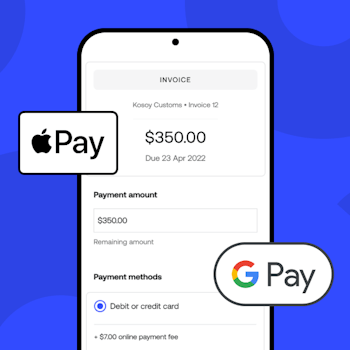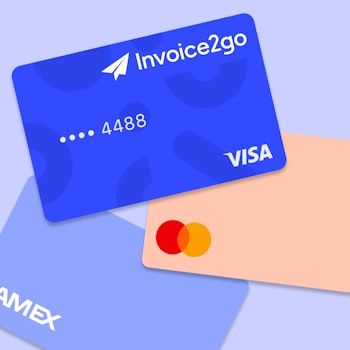
10 resolutions for small business owners for 2022
The end of the year is nigh! Like many small business owners, you’re likely thinking about the year that’s passed, what went right, where you could improve. The new year is an opportunity to reflect, project, and put new plans in place that will help you accomplish new goals and build on past wins.
What new objectives are you focused on as 2021 winds down? If you’re stuck for ideas, we’ve got a few! Scroll through for inspiration—you’re sure to find something here to light that spark of renewal.
Top 10 small business resolutions for 2022
We’ve been tried and tested over the past couple of years, but there’s no question that we’re all stronger for it. But no matter how well things are going, there are always a few tweaks and upgrades that will take it to the next level. And aren’t we all looking forward to a little “next level” goodness?
So, without further ado, here are our top 10 small business resolutions, tailor-made for 2022. If you are ready to put this year in your rearview, let’s dive in.
1. I’ll improve cash flow gain a clearer understanding of my finances
Having a good relationship with money makes all the difference to your bottom line—and your mental health. Plus, if you’re in business for yourself, you can’t leave anything to chance. You’re likely wearing all the hats. And if finance is not your strong suit, you probably tend to backburner the work—tax prep, bookkeeping, assessing your cash flow—until it’s absolutely necessary.
You’ll hear the phrase “cash flow is king” bandied about quite a bit in business, and there’s a good reason for that. Positive cash flow enables you to seize opportunities when they arise. It also strengthens your business against surprises that aren’t so welcome, like lockdowns, supply chain snafus, disappearing employees, and vendor relationships gone wrong.
Plus, a better connection to your finances will tell you when it’s time to expand or diversify. Lenders will be more likely to help you when you have a deep, meaningful, and pragmatic view of your bottom line.
Apps like Invoice2go, a Bill.com company, support this all-important resolution, helping you stay organized, automate processes, visualize business operations, and perhaps more importantly, get paid faster.
2. I’ll price my services competitively and not undersell myself
Knowing your worth is more than half the battle. If you launched a new business in 2021, perhaps you wanted to price yourself competitively to give it a push, and that’s totally understandable. However, if your pricing doesn’t reflect your skillsets or the market, you’ll always be chasing your tail, and the optics are not ideal, either.
Pricing yourself appropriately starts with benchmarking your value. You don’t want to come in too far under or over your competitors as it sends the wrong message to prospective clients. Cheap attracts cheap and too expensive might price you out of the market.
Of course, there are other reasons to revisit your pricing periodically. Many creative professionals and businesspeople have reviewed their pricing structures in light of inflation and rising business costs in general. In other words, even if your pricing was okay last year, it might not be realistic today.
Resolve to go deep into your pricing structures and determine the true cost of your services. It’s not just about your personal worth; there are a lot of indirect costs too—utilities, insurance, accounting, software, devices, your website, and more. Check out our in-depth guide on how to price your services for the win.
3. I’ll use tools to stay more organized and avoid frustration
It’s easy to get overwhelmed with everything you need to do as a small business owner. Fortunately, there are a lot of tools to help you automate or at least make light work of certain tasks and help you stay focused as you’re getting things done.
A solid stack of curated small business apps is like having a crack team that never takes time off. Typically, you’ll want tools to help you manage your money, manage projects, maintain customer relationships, stay in touch with your stakeholders, and stay productive.
Invoice2go, for example, helps you stay on top of your finances, invoice customers, process payments, and manage your website. You can even connect the apps you already use, like QuickBooks, Xero, Dropbox, HubSpot, and G-Suite, to create a 360˚ solution that’s customized to your workflow needs. When all your business apps are connected and viewable through a single pane of glass, you’ll save a lot of time, effort, and frustration—and that’s a resolution worth working toward.
For inspiration, check out our guide to the best small business apps in 2021.
4. I’ll build meaningful customer relationships
No matter what industry, niche, or specialty you offer, chances are you’ve got plenty of competition. But the one thing that sets a company apart is how they treat their customers.
Today, in our hyper-connected, ratings and reviews-driven world, customer relationships and customer service are everything. They’re the difference between a high-performing company and one that just toes the line. Resolve to be one of the former, not the latter.
But how do you build meaningful relationships in the digital age? Back in the day, people would come into your store or office, you’d get to know them, and soon you’d be able to anticipate their needs and put solutions in their hands before they even knew they needed them. Of course, this still happens, but when the bulk of your business is done online, that human connection sometimes gets lost in the ether.
There are many ways to build stronger customer relationships, and ostensibly the best way is to stay connected. Tools like HubSpot and Invoice2go are great tools to help you understand your customers and manage their interactions with you. When you make it easy to do business with you, loyalty almost always follows.
5. I’ll invest in myself and learn at least one valuable new skill
As humans, most of us strive to better ourselves. The same is true in business. Nothing grows in a vacuum. When you adopt a learning mindset, you’re setting yourself up for innovation and growth.
Whether you take an online course to improve your project management chops or get certified in an entirely new technical skill, you can’t lose.
Perhaps you already have ideas on what you’d like to learn. But if you don’t, start by thinking about your competition. What do they offer that you can’t? If you add a new skill to your repertoire, perhaps you can capture some of that business. Maybe you’re missing out on an entire demographic because you don’t speak another language, and perhaps it’s time to learn.
Are there new or emerging trends in your industry? And what about the thought leaders you admire? What strategies did they use to achieve their wildest dreams?
Resolve to set time aside each week to learn something new. Read books, talk to colleagues, and join LinkedIn groups to find out the hot topics. There are no rules here, but it usually follows that when the learning starts, growth and innovation follow.
6. I’ll build my brand and online presence
The early days of the pandemic spawned a lot of new small businesses and business transformations. Many jumped on opportunities to fill a need or pivoted to satisfy customer demand, and as such, they were forced to forge ahead without much thought to branding or marketing.
As the dust settles around many of these ventures and business-as-usual starts to normalize, newer businesses find themselves in need of a better-defined presence. At the same time, companies that underwent significant changes might not bear any resemblance to what they were before. If you see yourself in either of these scenarios, you might be due for a brand overhaul.
But before you dive headfirst into a rebrand, you need a solid strategy. Do you need a complete branding or rebrand? Or do you just need to spiff up your look and some of your messaging to fit your new model? For actionable tips, check out our article on how to rebrand your business successfully.
7. I’ll be strategic in how I plan for the future
Setting goals and planning for the future are not simple tasks. You can have all the best intentions, but if you run into challenges along the way, it’s too easy to let things slide. At least, that’s often the case if you go blindly into a new year without a solid strategy.
Strategy is about planning, but that’s just the beginning. If you want your plans to succeed, you need to be able to track, measure, and quantify your progress.
Here are a few steps to consider as you develop your strategic plan:
- Develop a vision
- Define your targets
- Think long-term
- Be systematic
- Be prepared
- Identify key performance indicators (KPIs) that indicate success (or progress)
- Set milestones
- Benchmark your results
- Adjust your plans when necessary
- Don’t give up—but know when you’re at the point of diminishing returns
Resolve to plan well in advance and heed the signposts as you make your way to the goal. It’s a lot easier to tweak your roadmap in transit than it is to plow ahead despite the warning signs. Gauge your progress against KPIs that matter; reevaluate and course-correct when needed.
8. I’ll seek solutions instead of complaining about challenges
Sometimes, it’s too easy just to throw up your hands and say, “I give up.” But that’s not exactly an acceptable business practice. You’re bound to face challenges along the way; that’s a given. It’s how you handle them that counts.
Problem-solving is a coveted leadership skill. Master it, and the world will get a whole lot less stressful in just about every way.
You don’t want to be remembered for that trail of destruction and unfinished projects you left in your wake, now, do you? A better strategy is to try at least to work through things before you toss the idea in the proverbial round file.
Problems come in all shapes and sizes. Some are small and only affect you. Others are monumental and impact the entire organization or (worse) your customers. The way you respond is what makes the difference between success and failure.
First, you need to recognize that there is a problem. Identify all the moving parts involved in the situation and who (or what) it affects. If the issue is beyond your capabilities, ask for help. Call a colleague or consult an expert. Research new tools and methods, so it doesn’t happen again.
9. I’ll care for my mental health and take time off
Work-life balance isn’t easy when you’re running the show. But you will not bring the best of yourself to any task if your mind is frazzled.
Too much work and too little time off lead to burnout. That’s true whether you’re working for yourself or a company. When running a small business, the overwhelming instinct is just to keep going, be available, and have your hands on every little thing. And while your customers probably love the fact that they can get you to respond to their emails at all hours of the day or night, it’s not sustainable. Pretty soon, that charming client who gives you all that work is going to get the business end of your stress, and that’s not good for anyone.
So, in the new year, resolve to schedule time for yourself. Find tech, people, or services to cover you while you’re off the clock, so you don’t have to be on high alert all the time. Make time for exercise, time with friends and family, and learning new things. You’ll be amazed at how much more you can bring to your work once you begin to prioritize yourself. As the saying goes, you must first drink from the well yourself before you can nourish others.
10. I’ll take pride in my work
You started your business because you are good at what you do, and your services are in demand. When you take pride in your work, it resonates throughout your organization and radiates outward to your customers, vendors, investors, and all the stakeholders that matter.
But having pride in your work means more than just knowing what you bring to the table. When you continually work to improve, you’re more likely to feel satisfaction in what you do. You’ll be better able to get behind your ideas, and you’ll also be in a better position to help others do and be their best.
Resolve to be accountable to yourself and your business by setting yourself up for success. Track progress toward your goals and set reminders, so things get done on time. Solicit feedback—from your customers, employees, and even the freelancers you hire. Be gracious, accept compliments when they’re offered, and above all, acknowledge when others play a part in your success.
Lastly, don’t forget to give yourself some credit. We thought 2020 was challenging, but 2021 still had a few curveballs. But here we are, stronger, more resilient, and looking toward the future. Whatever it might hold, we know enough not to take anything for granted. In truth, the only thing we can control is ourselves, and when we resolve to move forward in strength, everybody benefits.
Related Articles

How to accept credit card payments on Invoice2go in 3 simple steps

Accept payments online via Apple Pay and Google Pay

Must-not-miss write-offs as you wrap up 2022 year-end finances

5 ways accepting credit and debit card payments helps your business stay resilient

4 easy ways to increase cash flow today

What is Small Business Saturday and why is it important?
The features and surprising benefits of a well-designed packing slip
